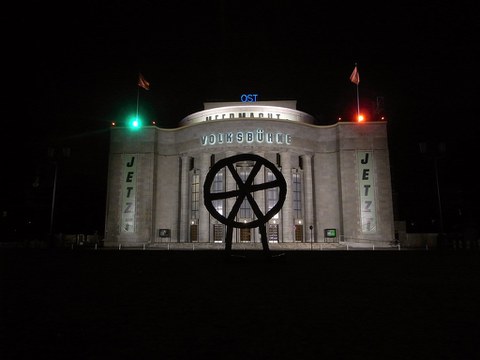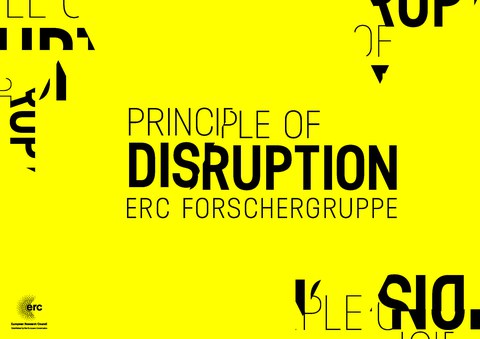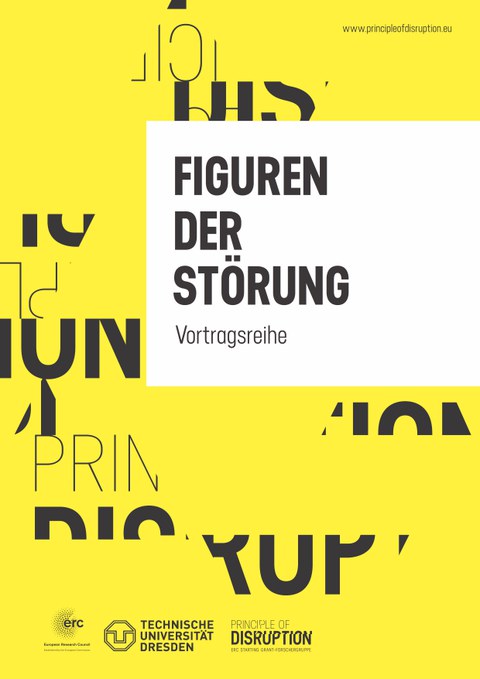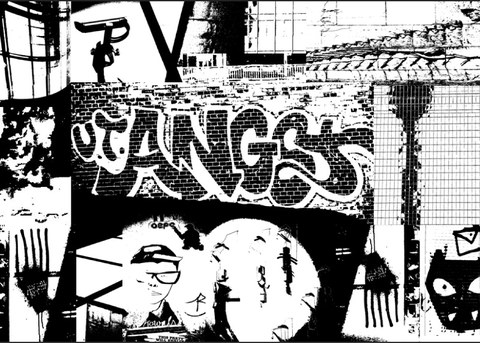Research projects
Chair staff regularly create interfaces from their own or joint research, which are brought together in research projects or presented at conferences.
Theater of Trans-lation. Dynamics and constellations of translation and reduction in theater and performance of the 21st century.
Project management: Lars Koch and Julia Prager
The project, which is divided into three working areas, examines the representation, performance and reflection of invective (disparaging, insulting and discriminatory) dynamics in contemporary theatrical forms and their institutional environments in German-speaking countries. Its particular methodological orientation consists of productively linking theoretical work on an expanded conception of disruptive translation with concrete performance analyses and investigations in the field of cultural institutions studies. In this way, the theater is considered as an arena for the negotiation of audibility, i.e. - in a quite literal sense - in its function as a listening space of linguistic and vocal invectivity as well as a resonance space of social conflicts that emerge from cultural and medial-spatial translation processes. On the one hand, this involves the investigation of theatrical dynamics of shameful affect in the auditory-acoustic spectrum of other languages, voices and sounds (e.g. speaking with an accent, dialect, sociolect or "jargon"). On the other hand, art and cultural-political practices of "disagreement" (such as the refusal of theaters to engage in discussion with the "New Right" and vice versa or controversies about artistic freedom, political correctness and "cancel culture") come into focus as specifically medial operations of audience and attention generation.
This perspective is also intended to make a contribution to current research trends in the reflection of discrimination practices, especially in the context of racism, by relating invective practices not only to visual phenomena (such as "skin color"), but also to exclusion based on vocal-sound marking, which in turn produces segregations in the socio-political and art-political field of audibility. The project assumes that this will enable a more concise investigation of discrimination practices in and around theaters, insofar as these can be increasingly negotiated as interdependent phenomena (for example in the areas of racism, sexism and, in particular, classism). The project deals with aspects of discrimination and disparagement both with regard to their sometimes critical functions in artistic productions and with a view to power-preserving operations in an institutional context.
Subproject K of the SFB 1285
SFB 1285: Invectivity. Constellations and Dynamics of Disparagement.
Subproject K: Theater of Discrimination. Representation and reflection of invective dynamics in contemporary theater, performance and action art
Project management: Lars Koch and Tanja Prokić
The sub-project examines theater, performance and action art in their dual constitution as social and aesthetic spaces of communication in which invective is realized as a cultural practice and framed by the media. It assumes that it is precisely here that (de)evaluative interaction and invective constellations and processes become affectively, perceptively and reflexively tangible. The TP focuses on the theater of discrimination as an institution, in its mediality and its affective politics, in its constellation to other social actors (media, institutions, systems), as an arena with licenses to speak and act, in its dissolution of boundaries and its discursive relationship to the social order. The task of the project is to question theater, performance and action art from the 20th century to the present day with regard to the (non-)success of invective calculation with its aesthetic, affect- and identity-political means of address and its proliferation: How is invectivity as a function of the social aesthetically implemented, reflected and commented on by the discourse-forming protagonists of contemporary German-language theater (such as Milo Rau, Christoph Schlingensief, Yael Ronen and many others)? What strategies of politicizing affects and what knowledge about the response effects of invective communication are generated and tested? Which spatial and medial dispositions determine the respective invective-critical aesthetics of effect and how are these historically anchored (exemplified by Valie Export or F.W. Fassbinder)? Finally, the project's interlocking of discourse-analytical, phenomenological and genealogical perspectives makes it possible to reflect on social constellations of social and political discrimination and to critically question latent mechanisms of discrimination produced by the theater itself.
Precarious nature. Landscape, climate and people in village history
Realist literature of the 19th century becomes a platform for (proto-)ecological thinking long before ecology establishes itself as a science and 'movement'. Village and local history stories in particular can be read as an ecological commentary on historical transformation. Ecological because the need to elevate a natural way of life to an ideal only arises when it can no longer be taken for granted. The conditions for ecological thinking are created in the first place in dialog with a large number of non-fictional texts that appear in the publication environment of the stories of the 'natural homeland' (Sebald) - for example in journals and folk calendars. The project focuses on this discourse in order to be able to compare it internationally and historically and to trace the conditions of today's ideas of how human-nature relationships are and should be.
OTPP project, Director: Dr. Solvejg Nitzke
Horror stories. Literary emotional practices of fear around 1800
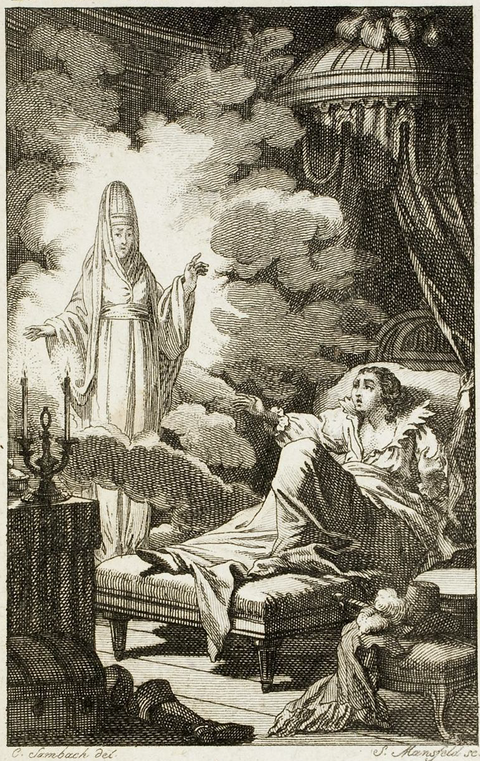
Signatur: DD93 A 33414:4,4 PURL: http://resolver.sub.uni-goettingen.de/purl?PPN884538338
The project examines the literary treatment of fear in German-language horror literature around 1800. It investigates how literary fear can be defined more precisely from a praxeological perspective with regard to its objects, forms and functions as an element of an emotional practice of the Sattelzeit. The project, which focuses on literary studies and incorporates approaches from the history of emotions and media culture studies, aims to identify the specific historical signature of anxiety in the period under investigation. Accordingly, the project understands fear as a knowledge-led, performative practice that needs to be situated in its enabling context, constituted in equal measure by historical emotional knowledge and literary treatment. This results in a twofold structure of questions: the aesthetic form of historical fear in literature on the one hand, and the productive effects of popular literary communication for the shaping of contemporary fear on the other. In concrete terms, this results in three interrelated research desiderata that need to be addressed: the project profiles fear in a historical form to be reconstructed as a leading emotion in German-language literature around 1800 (1); it works on a comprehensive historization of emotions and media history and thus a functional re-perspectivization of German-language horror literature of this period (2) and places literary research on emotions and the history of emotions in a productive relationship to one another (3). The project is thus based on fundamental considerations on the historicity of literature and the relationship between literature and emotion, ties in with questions on the cultural depth dimension of fear and combines the emotional history of fear with a media anthropology of popular horror literature.
Against this background, the project will use the genre of horror literature, popular in the 19th century, to investigate which literary processes and techniques articulate and communicate fear in a way typical of the time (modes of presentation, concepts, motifs) (emotionalizing effects, narrative structure, thematization and commentary). Following a broad conceptual understanding of horror literature, the focus is on a corpus that includes, for example, Friedrich Schiller's novel fragment The Ghost Seer (1787) as well as E.T.A. Hoffmann's Nachtstücke (1816) or Wilhelm Hauff's satirical, gruesome novella Mittheilungen aus den Memoiren des Satans (1825/26), but also takes particular account of popular literary texts from the 'second' and 'third' series. In order to be able to analyze a corresponding ensemble of primary texts from an emotional-praxeological point of view, it is necessary to include their contexts in the history of knowledge and discourse, i.e. to question gothic-literary fear for its mutual interferences with contemporary emotional knowledge on the one hand and prominent fear discourses (ghosts, apparent death, secret societies, dreams and madness) on the other. By testing the productivity of an emotion-historical-praxeological perspective on German-language horror literature in this way, the project also explores the possibilities of a literary-historical praxeology of fear.
DFG project:
- Head: Prof. Dr. Lars Koch
- Project collaborator: Jakob Baur M.A.
The Principle of Disruption
The interdisciplinary research group The Principle of Disruption, funded by the European Research Council, is dedicated to the cultural diagnostic potentials that are grouped in feedback loops around media, artistic and socio-political disruptions.
In the Figures of Disruption lecture series, lecturers and authors are regularly invited to the TU Dresden to reflect on "Figures of Disruption" from their respective fields and thus outline the field of research. The lectures are often held in conjunction with in-depth workshops.
Playful forms of fear
DFG network "Play Forms of Anxiety": http://www.spielformen-der-angst.de

